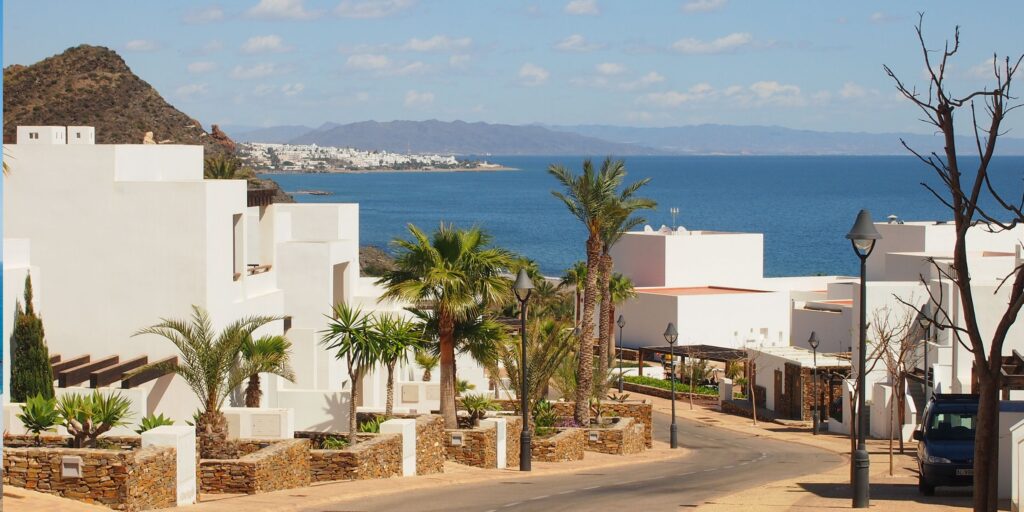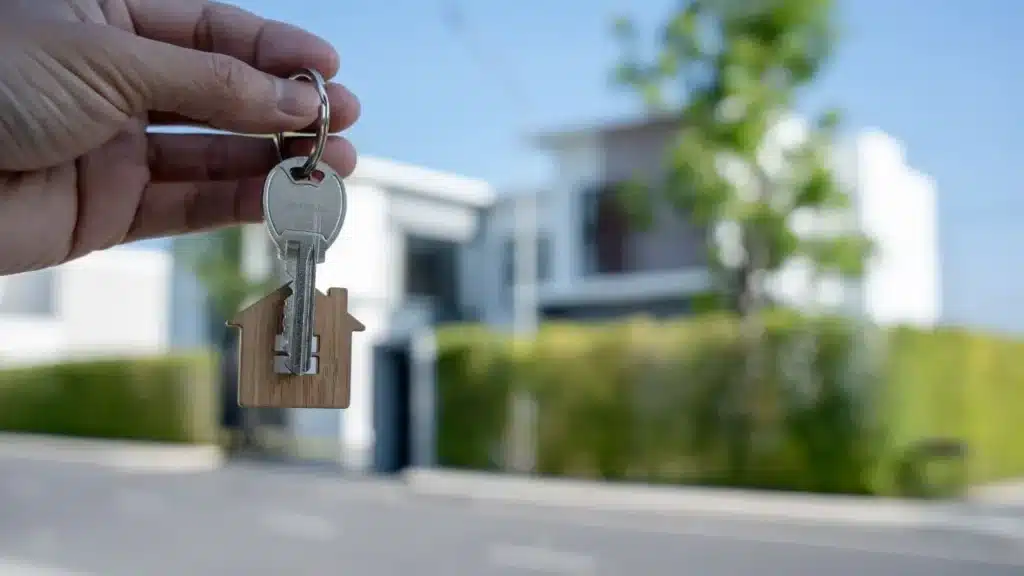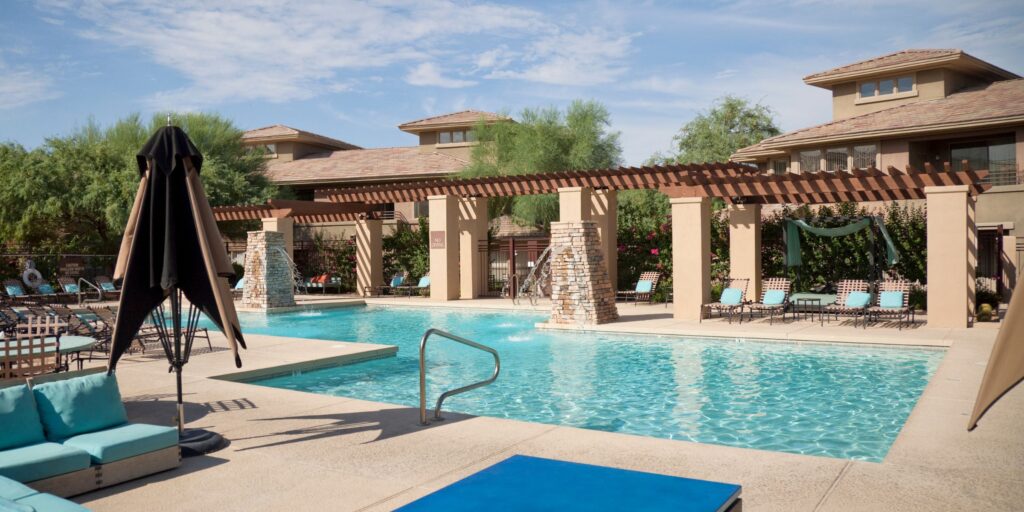Introduction
For years, the Costa Blanca has been one of the most popular regions in Spain for foreign homeowners. Whether you have a property on the Costa Blanca for personal use, a villa you rent to holidaymakers, or are planning to buy a house soon—there is a lot to consider. Think of keyholding and property management, as well as regulations around rentals and the online visibility of your property or business.
Many Dutch and Belgian nationals choose a property on the Costa Blanca for its sunny climate, relatively affordable housing prices, and excellent accessibility via airports such as Alicante and Murcia. However, as soon as you own—or consider buying—a property, practical questions immediately arise. Who keeps an eye on things when you are not there? What rules apply to holiday rentals? And how do you ensure your property or business stands out in a crowded market?

In this comprehensive article, you will find all the answers in one place. We will guide you step by step through the key topics for (future) homeowners and entrepreneurs on the Costa Blanca: from keyholding and property care to rental rules and web design. This way, you will be optimally prepared and get the most out of your property on the Costa Blanca.
1. Keyholding explained
When you own a property on the Costa Blanca, you are often not present all year round. Precisely during those periods,
What Does a Keyholder Do?
A keyholder manages the keys to your property and serves as your dedicated local point of contact. That means you always have someone nearby who can grant access to your home when needed. For example:
- Emergencies: in case of leaks, storm damage, or an alarm, the keyholder can be on site immediately.
- Access for third parties: cleaners, maintenance technicians, or delivery services can be safely let in.
- Guest reception: if you rent out your property, the keyholder can welcome guests, hand over keys, and check everything upon departure.
Safe and Professional
Many people leave their house keys with neighbors or friends. That may seem convenient, but it carries risks. Not everyone is always available, and keys can be lost. With professional keyholding, your keys are stored securely and registered. Moreover, there is always someone who can respond quickly when needed.
Peace of Mind for Homeowners
Keyholding is primarily about peace of mind. You know your property on the Costa Blanca is in good hands, even when you are thousands of kilometers away in the Netherlands or Belgium. And should something happen, there is always a reliable point of contact who can act on your behalf.

2. Property Care: comprehensive property management
Keyholding is the first step, but it often goes much further. Many homeowners opt for a complete form of
What Does Property Care Include?
Property care or property management can include a wide range of tasks, depending on your wishes and the agreements with your manager. Consider, among other things:
- Regular property checks: the property is periodically inspected for leaks, mold, signs of burglary, and technical defects.
- Cleaning and maintenance: post-stay cleaning, window washing, garden maintenance, and pool service.
- Mail management: collecting and forwarding important mail or documents.
- Preparation for guests or your own stay: stocking the fridge, making the beds, and turning on the air conditioning or heating.
- Post-departure checks: ensuring everything has been left tidy and that no damage has occurred.
Who Benefits from Property Care?
Property care or property management is particularly valuable for:
- Homeowners who rent out their property on the Costa Blanca to holidaymakers.
- People who spend only part of the year in Spain.
- Owners of luxury villas that must remain in excellent condition at all times.
The Benefits at a Glance
- Peace of mind: you know your property on the Costa Blanca is always kept in good condition.
- Preservation of value: regular maintenance prevents major and costly problems.
- Professional appearance: a well-maintained property is more attractive and trustworthy for renters.
In short: with property care, your house becomes more than just a place in the sun—it is a worry-free asset you can always return to with confidence.

3. Buying a property on the Costa Blanca
The dream of owning a property on the Costa Blanca in Spain is alive for many Dutch and Belgian nationals. The Costa Blanca is one of the most beloved regions, thanks to the Mediterranean climate, relaxed lifestyle, and attractive house prices compared to Northern Europe. However, buying a property in Spain works a little differently than in the Netherlands or Belgium.
The First Steps
Before you actually purchase a property, it is important to be well prepared:
- Explore the region: the Costa Blanca North (Altea, Jávea, Moraira) is often more exclusive, while the Costa Blanca South (Torrevieja, Orihuela Costa, Guardamar) offers many affordable options.
- Set your budget: take into account additional costs such as transfer tax, notary, and registration fees (on average 12–15% on top of the purchase price).
- Find a reliable real estate agent: preferably someone who speaks both Spanish and Dutch/English and has experience with foreign buyers.
Legal and Practical Matters
- NIE number: this identification number is mandatory for foreigners who want to purchase real estate in Spain.
- Bank account in Spain: needed to handle payments and ongoing expenses.
- Mortgage options: Spanish banks often grant mortgages to foreigners, but usually up to approximately 60–70% of the property value. You also have to pay the additional costs yourself, so altogether you should count on a substantial amount of own funds.
- Notary and lawyer: always have a lawyer check the title deeds and any debts attached to the property before you sign.
What should You Pay Attention to?
- Are all building permits in order?
- Is the property free of debt (no outstanding mortgage, taxes, or community fees)?
- What about the HOA (comunidad de propietarios) in apartment complexes?
Good preparation saves you a lot of worries and unexpected costs. Increasingly, homeowners engage local experts who not only assist with the purchase but also with the later management of your property on the Costa Blanca.
4. Rental rules and permits for your property on the Costa Blanca
Many owners of a property on the Costa Blanca choose to rent it out when they are not staying there themselves. This can be an excellent way to generate additional income, but Spain has clear rules you must comply with. Those who ignore these rules risk heavy fines.

Permit for Holiday Rentals
If you want to rent your property to tourists, you will need an official tourist rental permit in the Valencia region (which includes the Costa Blanca). This is known as a VT number (Número de Registro de Turismo). Without this number, you may not advertise the property on platforms such as Airbnb or Booking.com. Recently, obtaining such a permit has become increasingly difficult; in some municipalities they are no longer issued at all.
How Do You Apply for a Rental Permit?
- You submit an application to the Generalitat Valenciana .
- Your property must meet certain requirements, such as basic amenities, fire safety, and correct registration with the municipality.
- After approval, you will receive the VT number, which you are required to state in advertisements.
Taxes on Rentals
- Income tax: rental income must be declared, even if you are tax-resident in the Netherlands or Belgium. Spain has tax treaties with many countries to prevent double taxation.
- VAT (IVA): in most cases, you do not have to charge VAT for short-term rentals, unless you provide hotel-like services (for example, breakfast or daily cleaning).
New Regulation: Maximum 10 Days of Tourist Rental
Since August 2024, important changes have been introduced to the legislation on tourist rentals. The guiding principle is that a property may be rented to the same tenant as tourist accommodation for a maximum of 10 consecutive days. In that case, an official tourist rental permit (the so-called VT number) is mandatory. You must also always state this number in advertisements and on rental platforms.
What about 11 Days or Longer?
When a rental agreement covers a stay of 11 days or longer, it no longer falls under the tourist regime. No tourist permit is then required, but the contract must comply with other legal provisions. This often involves seasonal rentals or temporary rentals, with official rental contracts clearly setting out the conditions.
For long-term rentals (for example, contracts of 11 months or more), the Spanish rental law (Ley de Arrendamientos Urbanos) applies. This generally provides tenants with more rights and protection than short-term rentals.
Permits and Validity
- For tourist rentals (up to 10 days), a permit remains mandatory. This permit is valid for a maximum of 5 years, after which a renewal is required.
- Property registrations that already existed before the 2024 legislative change remain valid until August 2029. Thereafter, these properties must also comply with the new rules.
Important to Remember
- Tourist rental = maximum 10 days → permit required.
- From 11 days → no tourist permit required, but an official rental or seasonal agreement is mandatory.
- Long-term rental = under the rental law, with different rights and obligations.
The Risks of Illegal Renting
Spanish municipalities are increasingly active in monitoring illegal holiday rentals. Those who advertise or rent without a permit can expect fines of up to 60,000 euros.
With the right permits and administration, holiday rentals can, however, be a safe and profitable way to make optimal use of your property on the Costa Blanca.
Update 2025: New Legislation on Tourist Rentals in Spain
As of April 3, 2025, the regulations on tourist rentals have been further tightened. Especially for apartment complexes, this means the Homeowners’ Association (HOA) now has more say over whether short-term rentals are allowed.
What Has Changed?
- HOA approval required
Apartment owners now need prior approval from their HOA to rent the property short-term (less than 11 days) to tourists. - Approval by majority
At least 3/5 of the owners and 3/5 of the voting rights (quota) must agree to allow tourist rentals within the complex. - No retroactive effect
This change does not apply retroactively. If you were already legally renting to tourists before April 3, 2025, you may continue to do so. - Higher fines
Those who rent without the proper permits or approvals risk significant penalties. Depending on the region, fines can reach up to 600,000 euros. - Mid-term rentals remain allowed
Rental contracts between 11 days and 11 months fall outside this regulation and remain permitted without HOA approval.
What Does this Mean for You as a Landlord?
Do you want to (continue to) offer your property on the Costa Blanca as holiday accommodation? Then keep the following in mind:
- Always check whether your HOA permits short-term rentals.
- Apply for the necessary approval in good time.
- Consider alternatives, such as mid-term rentals, if tourist rentals are not possible within your complex.
5. The importance of online visibility
Whether you own a holiday property on the Costa Blanca that you wish to rent out, or are starting your own business in Spain: online visibility is indispensable. Tourists and expats now search for information almost exclusively via Google, social media, or platforms like Booking.com and Airbnb. If you are not visible there, you will miss opportunities.
For Homeowners (Holiday Rentals)
A dedicated website or rental page gives your property a professional image and makes you less dependent on external platforms. In addition, you can:
- Enable direct bookings without paying high commissions to rental sites.
- Show extensive information and photos, helping you build trust with renters.
- Collect reviews that make your property more attractive.
- Use SEO (search engine optimization) to be found for search terms like “holiday home for rent (city) Costa Blanca”.

For Start-Up Entrepreneurs on the Costa Blanca
Many Dutch and Belgian nationals start a business in Spain alongside their property, for example a B&B, consultancy, or service company. A well-designed website is often the first step towards success.
With a modern, mobile-friendly site, you ensure that potential customers find you quickly. Add a listing on Google Maps and local SEO, and you will significantly expand your reach.
The Importance of Professional Design
Of course, you can build a website yourself, but a professionally designed site makes a real difference:
- Fast loading times (important for Google and users).
- Security and reliability through SSL and updates.
- Clear calls to action so visitors actually get in touch or make a booking.
- Consistent branding so your business or property develops a recognizable identity.
Even if you use a rental platform, having a website for your property on the Costa Blanca adds value. People often check after browsing a booking platform whether they can book directly. In that case, you naturally want to make a positive impression. Investing in a strong online presence is a direct investment in the value and appeal of your property or business.
6. Conclusion & practical tips
Owning a home or starting a business on the Costa Blanca is a dream for many – and with the right preparation, it is absolutely achievable. In this article, you have been able to read about everything involved: from key management and property care to purchase assistance, rental rules, and the importance of online visibility.
The Common Thread
- Key management gives you peace of mind: there is always someone on site who has access to your property.
- Property care ensures continuous maintenance and supervision, so that your property remains in top condition.
- Buying a home requires preparation: consider a NIE number, legal checks, and a reliable real estate agent.
- Rental can be profitable, but only if you arrange the correct permits and tax matters.
- Online visibility makes your property or business more attractive and easier to find.
Practical Tips
- Work with reliable local partners: they know the rules and save you a lot of time and stress.
- Invest in maintenance: addressing minor defects directly prevents major costs later.
- Arrange your administration: avoid fines for rental and tax returns.
- Ensure a professional presentation: a neat property and a strong online presence attract more tenants and customers.
With the right approach, your home on the Costa Blanca will not only be a place to enjoy, but also an investment that you can enjoy without any worries.
